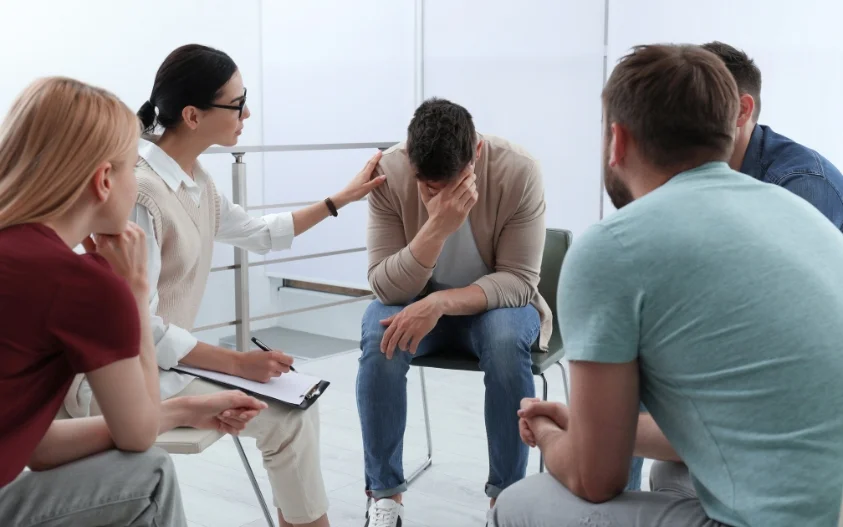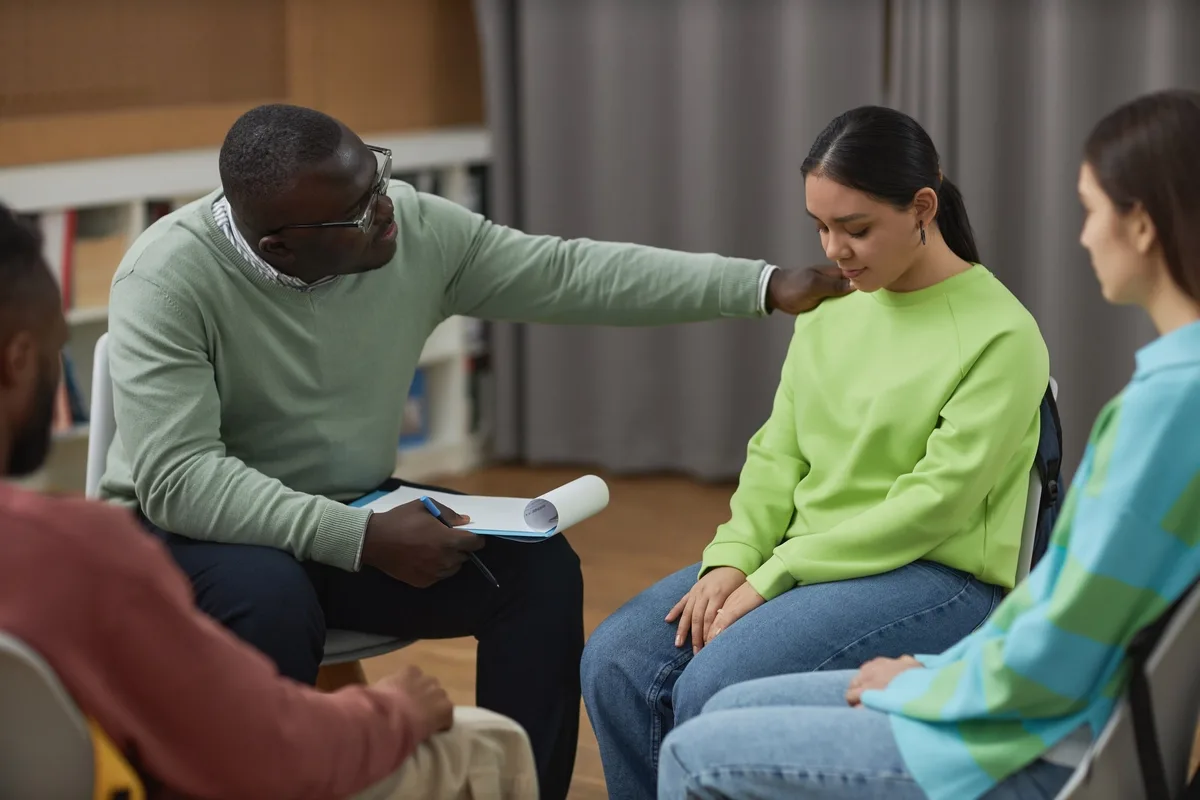24/7 Helpline:
(866) 899-221924/7 Helpline:
(866) 899-2219
Learn more about Depression Treatment centers in Marshall County

Other Insurance Options

Ambetter

WellCare Health Plans

MVP Healthcare

Molina Healthcare

Carleon

Premera

Sliding scale payment assistance

Cigna

American Behavioral

Multiplan

State Farm

UMR

Meritain

BHS | Behavioral Health Systems

United Health Care

Highmark
Beacon

Health Partners

Aetna

CareSource














AA – Alcoholics Anonymous
AA – Alcoholics Anonymous is a private rehab located in Gilbertsville, Kentucky. AA – Alcoholics Ano...






































